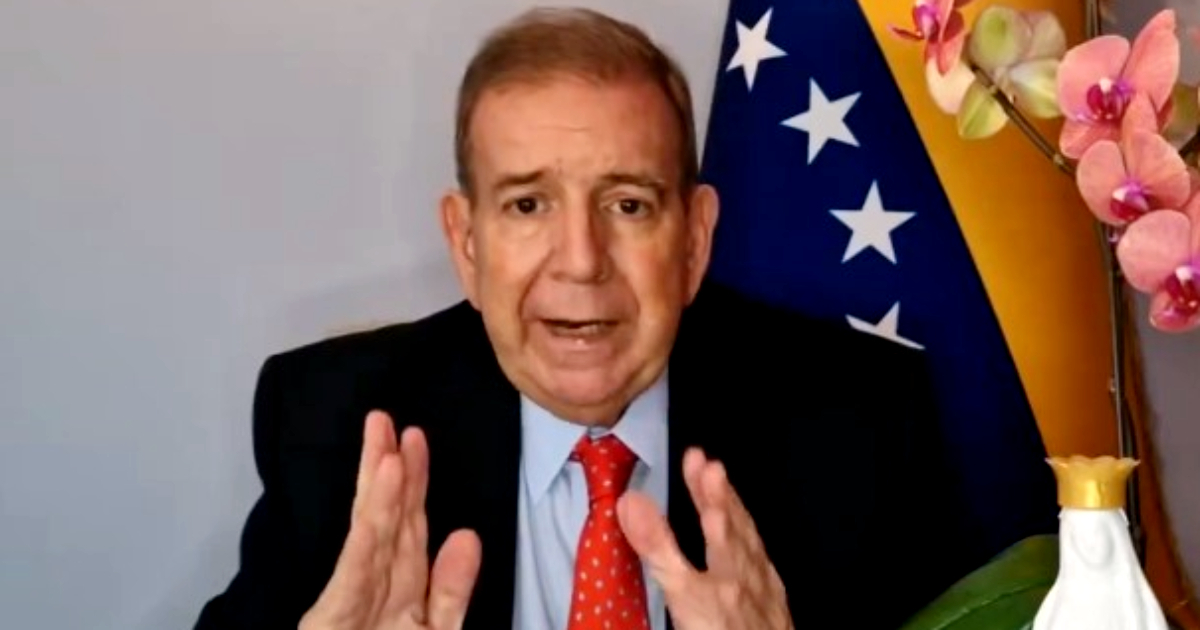The United States government and the countries that comprise the European Union (EU) have condemned the arrest order issued by the regime of Nicolás Maduro against Venezuela's elected president, Edmundo González Urrutia.
“Instead of acknowledging his electoral defeat and preparing for a peaceful transition in Venezuela, Maduro has now ordered the detention of the democratic leader who overwhelmingly defeated him at the polls,” stated Brian A. Nichols, the U.S. Assistant Secretary of State for Western Hemisphere Affairs. In his statement, published on social media, Nichols emphasized that “Edmundo González has been promoting national reconciliation” in Venezuela, a stance starkly opposite to that of Maduro's regime, which fuels polarization, violence, and conflict among Venezuelans.
As a result, Nichols assured that the United States joins “a growing list of international partners condemning this unjustified arrest order.”
On Monday, the Venezuelan Prosecutor's Office issued an arrest warrant against González Urrutia, Maduro's rival in the elections held on July 28, which were widely regarded by the opposition and numerous international actors as a fraudulent act by the Chavismo regime. The request was made public on social media after González failed to attend his third summons by the Public Ministry, which was scheduled for August 30 at 10:00 a.m. Caracas time.
Josep Borrell, the EU's High Representative for Foreign Affairs, also expressed his rejection of Maduro's repressive wave against the legitimate winner of the elections and the elected president by the Venezuelans. “I categorically reject the arrest order against Edmundo González Urrutia and urge the Venezuelan authorities to respect his freedom, integrity, and human rights. Enough repression and harassment of the opposition and civil society. The will of the Venezuelan people must be respected,” Borrell stated on social media platform X.
The charges listed by the Prosecutor's Office against González Urrutia include usurpation of functions, forgery of public documents, incitement to disobey the law, criminal association, and conspiracy. The former candidate denies all these charges, as outlined in a document authored by prosecutor Luis Ernesto Dueñez Reyes.
Opposition leader María Corina Machado commented on this accusation via X: “They have lost all sense of reality. Threatening the Elected President only serves to unite us more and increase the support of Venezuelans and the world for Edmundo González. Calm, courage, and firmness. We move forward.”
Following the publication of the election results on the website “Resultados con VZLA,” belonging to the opposition's Plataforma Unitaria Democrática (PUD), the Prosecutor’s Office attributed the offenses to González for publishing records of the elections showing their victory when the National Electoral Council declared Nicolás Maduro the winner.
In mid-August, the U.S. government described a United Nations (UN) report, which questioned the legitimacy of the electoral process in Venezuela, as "crystal clear." In a post on X, Nichols stated, "The UN report is crystal clear: Venezuelan electoral authorities did not comply with basic transparency and integrity measures, did not follow national legal and regulatory provisions, and did not conduct post-election audits."
The preliminary UN report on the Venezuelan elections highlighted severe irregularities in the electoral process that concluded with Nicolás Maduro's proclamation as president. Among the most notable criticisms, the document emphasized that "announcing the result of an election without publishing its details or disclosing tabulated results to the candidates is unprecedented in contemporary democratic elections."
Days later, EU ministers agreed not to recognize Maduro's victory. Although the foreign ministers could not reach a consensus to acknowledge the opposition's triumph, they concurred that there are no grounds to believe Maduro won the elections. "The Council decided that Maduro does not have democratic legitimacy as president. He will remain president de facto, yes, de facto," Borrell emphasized. "Since there are no records and no verification, and we fear there never will be, we cannot accept Maduro's legitimacy as the elected president," he asserted.
Key Questions About the Arrest Order Against Edmundo González Urrutia
In light of the recent developments surrounding the arrest order against Edmundo González Urrutia, several pressing questions have emerged. Below, we address some of the most relevant inquiries.
Why did Nicolás Maduro issue an arrest order against Edmundo González Urrutia?
Maduro issued the arrest order following his electoral defeat to González Urrutia, whom he accused of various crimes, including usurpation of functions and incitement to disobey the law.
What has been the international response to this arrest order?
The international response has been one of condemnation, with both the United States and the European Union denouncing the arrest order and calling for the respect of González Urrutia's rights and freedoms.
What did the United Nations report say about the Venezuelan elections?
The UN report highlighted severe irregularities in the electoral process, noting a lack of transparency and integrity, and criticized the announcement of results without disclosing detailed information to the candidates.
